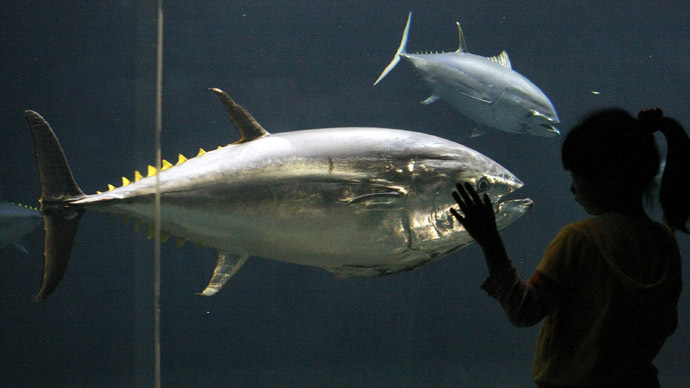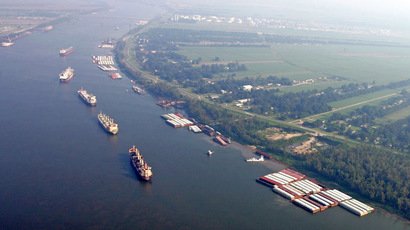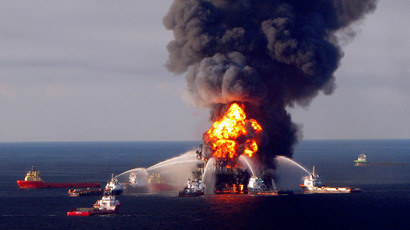Deepwater Horizon oil spill cause fatal heart defects in tuna - study

The 2010 BP Deepwater Horizon oil spill have likely inflicted serious heart defects and possibly premature death in tuna and other large marine fish, according to a study initiated by the National Oceanic and Atmospheric Administration (NOAA).
Embryos of three fish - bluefin tuna, yellowfin tuna and an amberjack – have been exposed to the field-collected Deepwater Horizon crude oil samples by a group of scientists led by NOAA.
The newly-hatched fish were chosen for research, as they were
believed to be the most affected by the 4 billion gallons of
crude, which spilt at the time and at the place of bluefin
spawning. Embryos and larvae find themselves closer to the water
surface and that’s where the spilt oil accumulates.
“The timing and location of the spill raised immediate
concerns for bluefin tuna,” said Barbara Block, Ph.D., a
study co-author and professor of biology at Stanford University.
“This spill occurred in prime bluefin spawning habitats, and
the new evidence indicates a compromising effect of oil on the
physiology and morphology of bluefin embryos and larvae.”
One of the biggest challenges was finding live animals for the
experiment, as the species concerned are difficult to raise in
captivity. Scientists had to go to the only two land-based
hatcheries in the world capable of spawning tunas in captivity –
one in Australia and one in Panama. It was there that the
researchers brought the oil samples and were able to recreate the
circumstances of the oil spill exposure.
Scientists could then monitor heart beating of the tiny and
translucent fish embryos directly by means of digital
microscopes. The released report on the study concludes that
“environmentally realistic exposures cause specific
dose-dependent defects in cardiac function in all three species.”
“At the level of a single heart muscle cell, we’ve found that
petroleum acts like a pharmacological drug by blocking key
processes that are critical for cardiac cell excitability,”
said Block.

The discovered dysfunction led to slowed or arrhythmic heartbeat.
That’s especially bad for large predators, like tuna, which
depend on moving swiftly for catching their food.
“This creates a potential for delayed mortality,” said
Dr. John Incardona, NOAA research toxicologist and the study’s
lead author. “Swimming is everything for these species.”
Incardona said the research results fitted the pattern of earlier
similar studies and that the effects of the Deepwater Horizon
spill on tuna were very much the same as the 1989 Exxon Valdez
oil spill on herring.
The study was welcomed by environmental groups. Largest
international NGO for ocean conservation, Oceana, said the
research was vital at a time when oil spills have become regular
and cited the most recent case, when a barge spilled 168,000 gallons of oil into Galveston Bay.
“Rather than rushing to let BP and its competitors go back to
drilling into our oceans, the Obama administration should be
devising a smarter energy strategy, charting a course to break
our oil addiction by building a clean energy driven future,”
Oceana’s vice-president for US Oceans, Jacqueline Savitz, said in
a statement.
The research by the NOAA comes as BP regained its permission to bid for US government
contracts. The company was suspended from federal contracts since
November 2012, following a guilty verdict in a case surrounding
the Deepwater Horizon disaster of April 2010.














